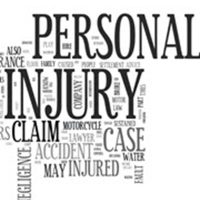The Roles of Judge and Juries in Your Injury Case

You may already know that in most typical injury lawsuits, a jury will hear your case and decide the facts. But there is also a judge, and your injury attorney may have discussed with you about the judge that was assigned to your case (judges are usually randomly selected to cases).
But why is there both a judge and a jury? And which one of them will affect the outcome of your injury case the most?
Law and Fact
As a general rule, a judge will make any decisions in your case about the law. The jury will resolve any dispute or conflict over the facts of the case. While this sounds simple, for many people it still can be a bit confusing.
What is Fact?
A question of fact is a fact that is in dispute in the specific issues in your case. The facts are often independent of the law—that is, a jury or a person need not know the law to resolve facts. One way to think of facts in a case is determining who did what to whom and when.
Take for example, a pedestrian car accident, where the driver says the pedestrian bolted out into the road illegally and the pedestrian says no, he was crossing in an area that he was legally allowed to cross.
Who is right? That determination needs to be made, but it can be made by a jury by hearing the facts—testimony from both sides, evidence of the car’s skid marks, expert testimony, photographs of the scene of the accident. None of this necessarily requires any knowledge of the law.
Determining legal Issues
But, during that same trial, imagine that there is a dispute over whether a witness’ statement who saw the accident is admissible, because it may be hearsay. The determination of whether the statement is or is not hearsay, and whether it meets the legal definition of hearsay, and thus whether it can or cannot be heard by the jury, is one that a judge makes because it requires a knowledge and application of the law.
Before and After Trial
Because most factual determinations are made at trial, the judge plays a more active role before the actual trial. This is when the parties often argue about what information the sides must exchange (discovery), whether expert witnesses can be used, or whether certain evidence can be excluded.
At trial, the judge will preside over the trial and will give the jury instructions on the law to apply to the facts.
For example, the judge will tell the jury what the accident victim must prove, in order to meet the legal definition of negligence. Or, the judge will tell the jury how it should consider a victim’s pre-existing injury, and whether or not it affects the victim’s ability to win the case and recover compensation.
Questions about your injury case? You’re not alone. We can help. Call the Boston personal injury lawyers at The Law Office of Joseph Linnehan, Jr. today for help at 617-275-4200.
